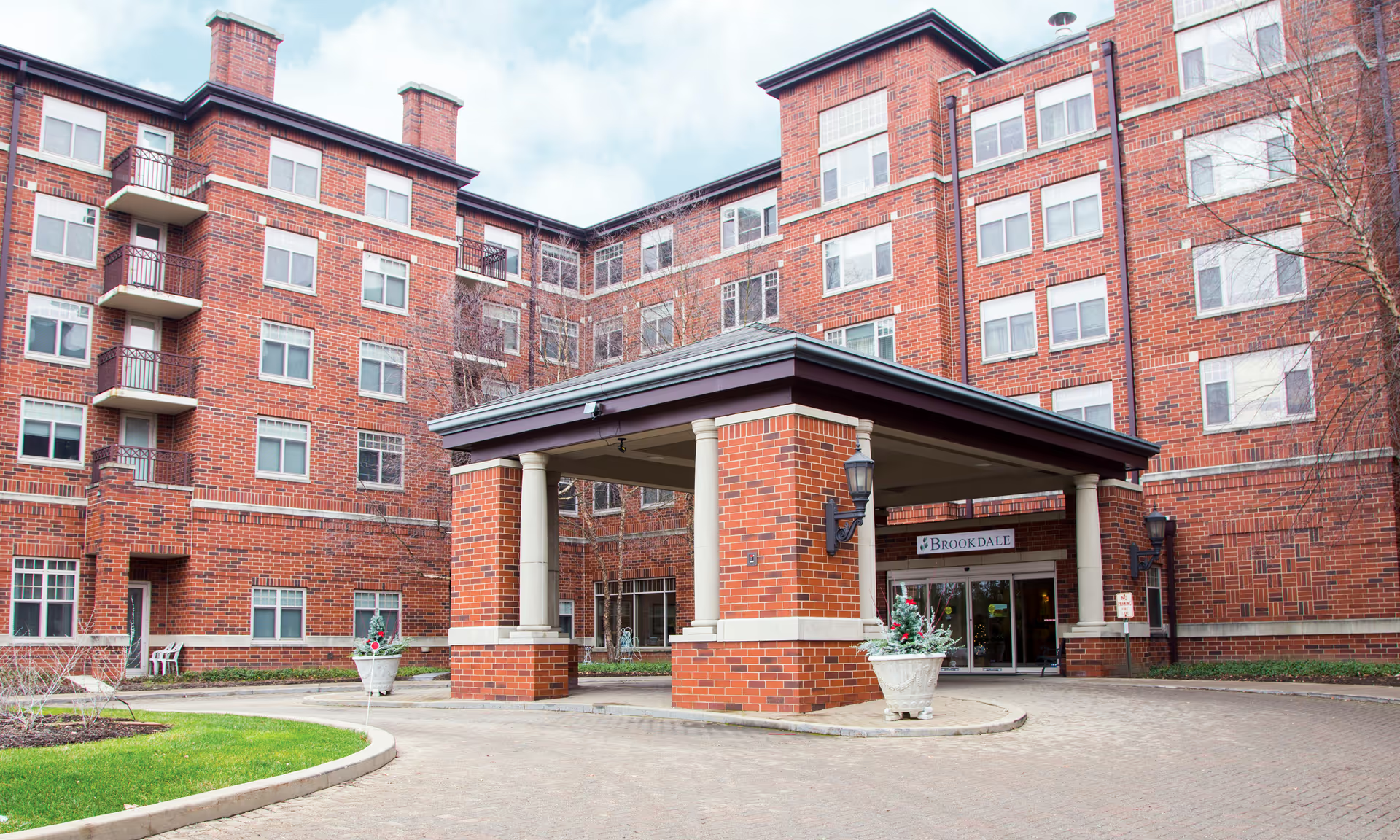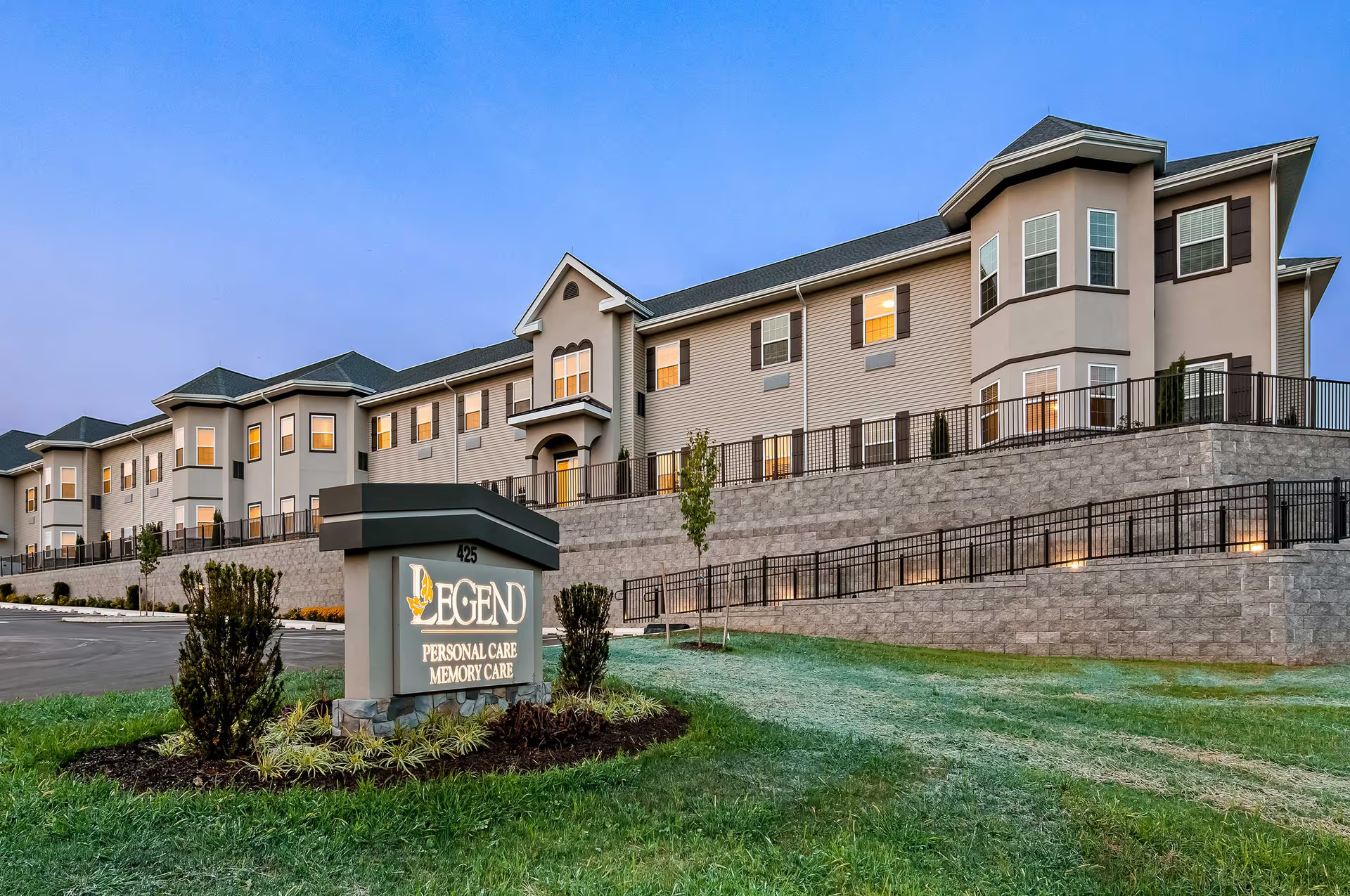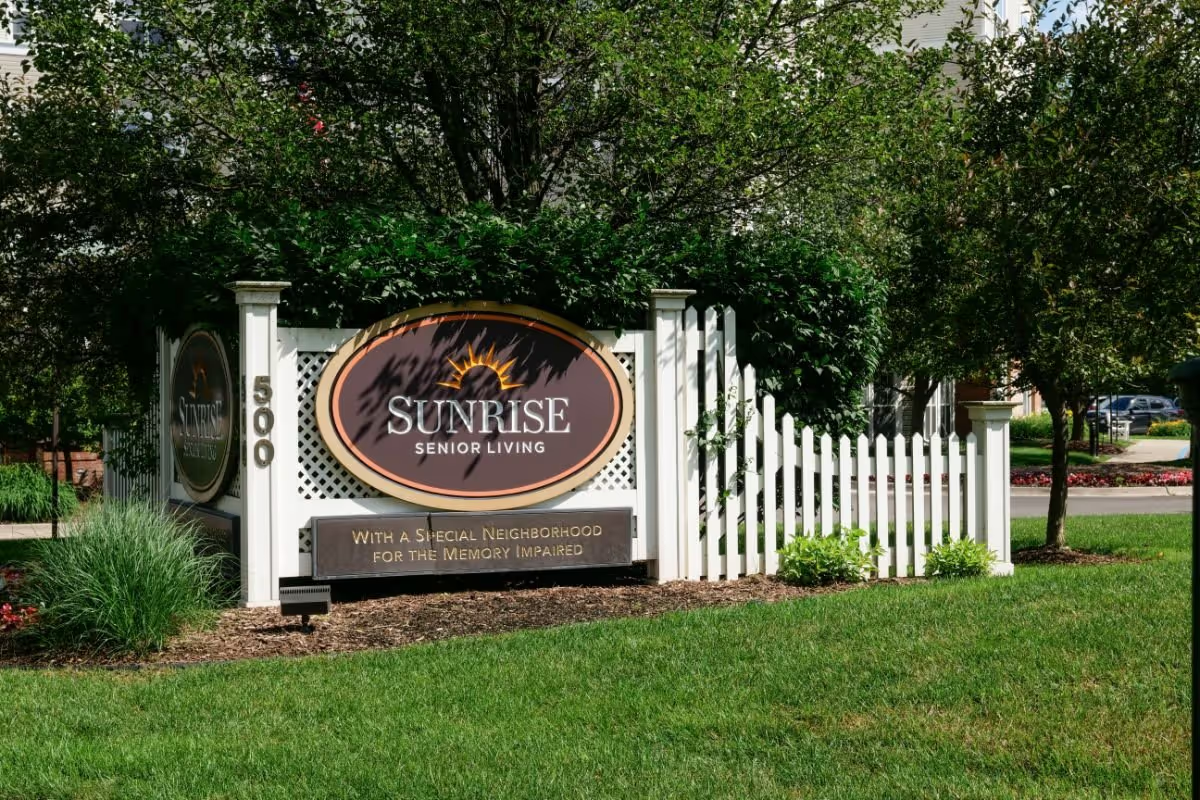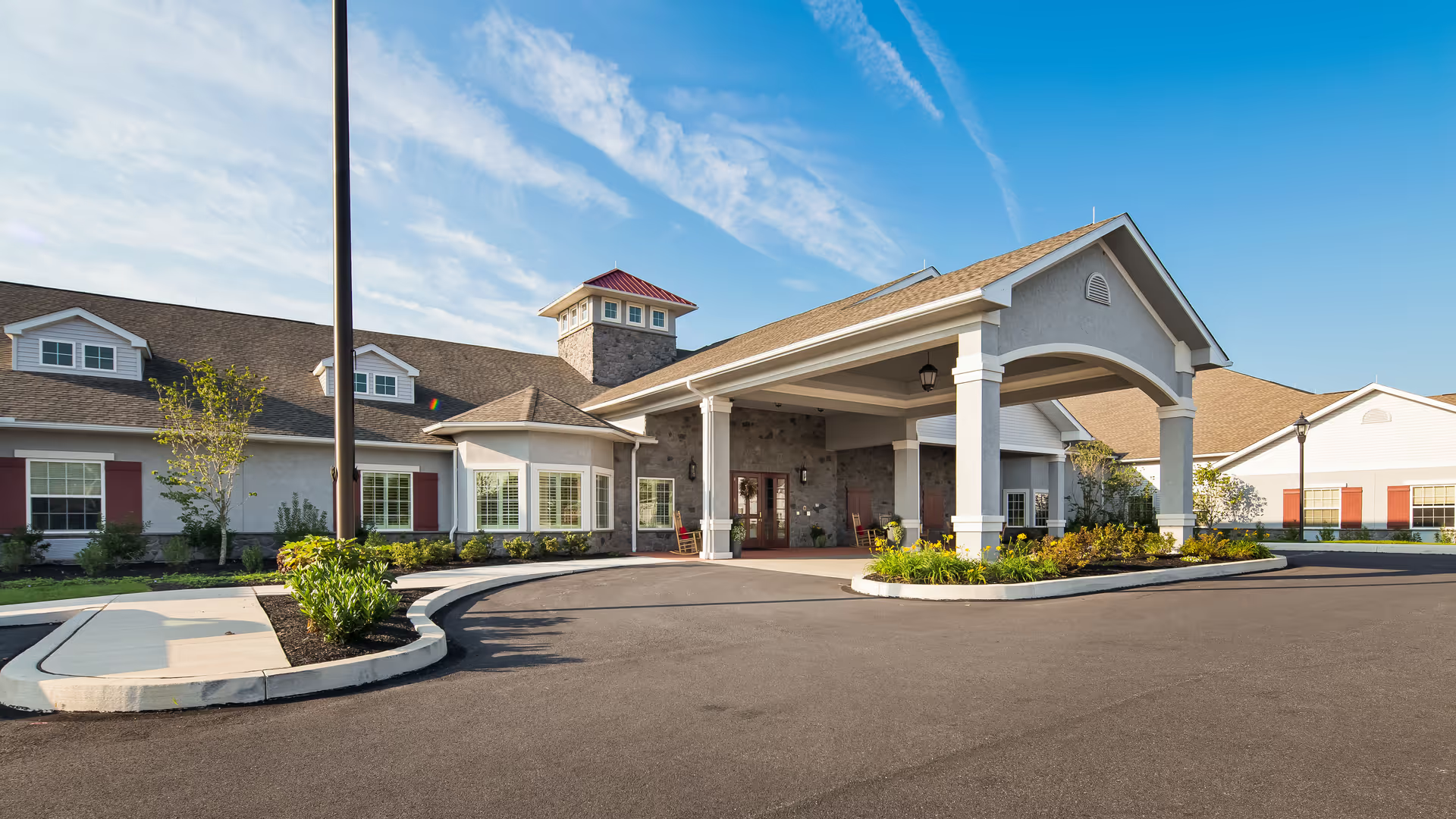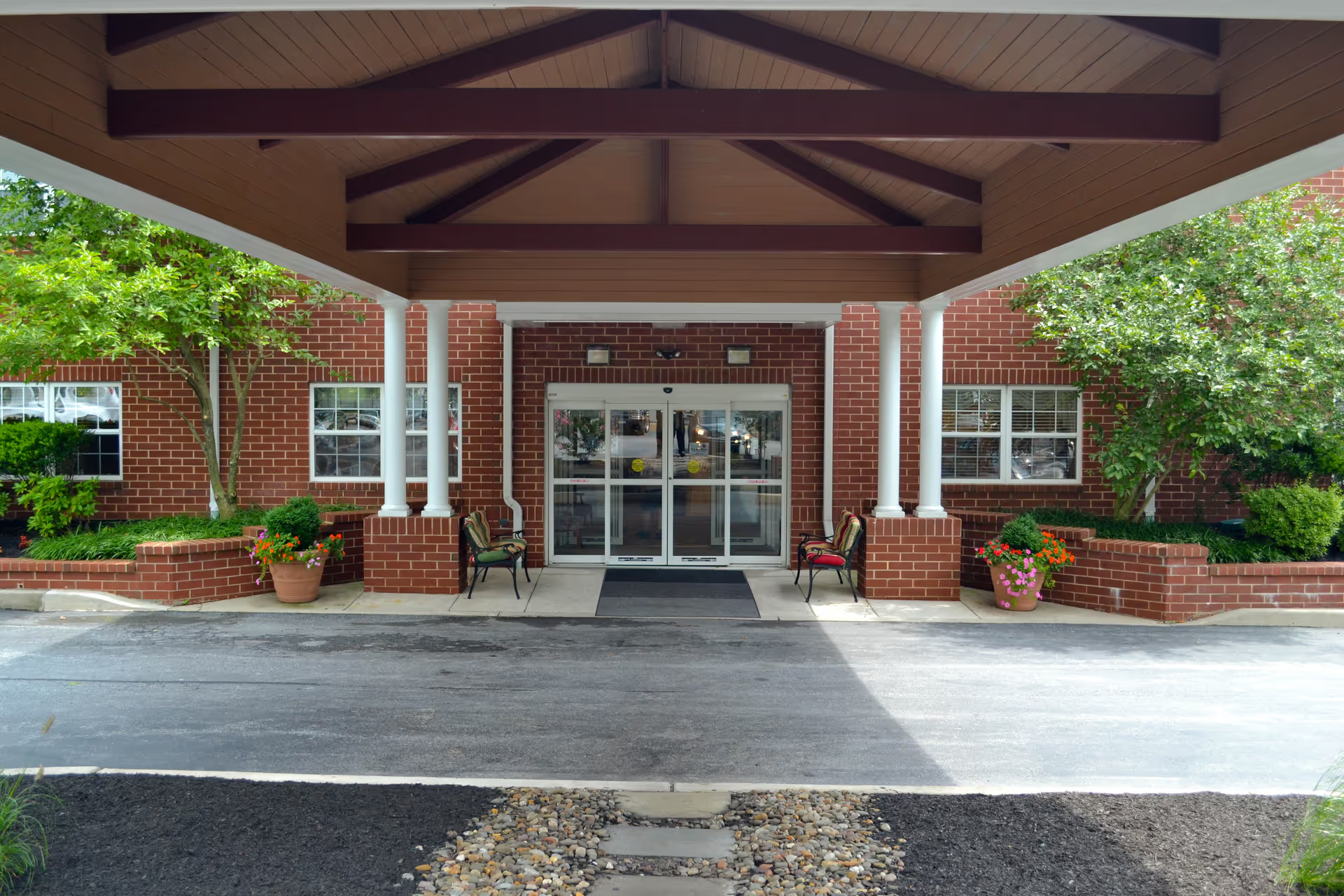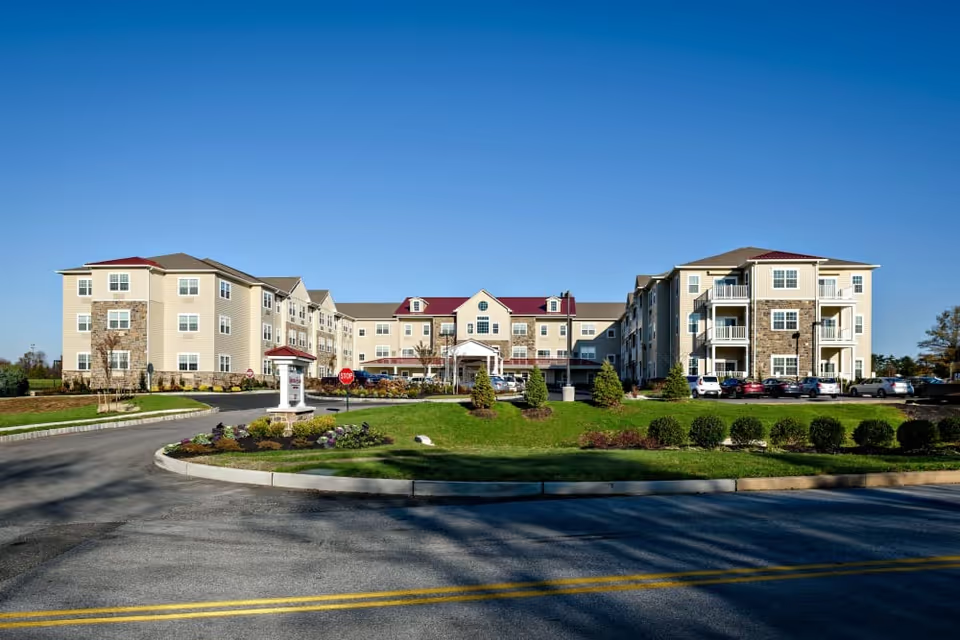Overall sentiment across reviews of Peregrine Senior Living at Orchard Park | Memory Care is mixed but leans positive with important and recurring caveats. Many families describe the staff as caring, compassionate and attentive; these positive reports frequently cite staff who know residents by name, provide personalized attention, and create a warm, family-like atmosphere. The facility itself is often praised as clean, recently remodeled, and home-like with attractive, private rooms (many with attached bathrooms), multiple communal spaces (activity room, two TV rooms, meditation room), and a secure locked memory-care layout. Dining is a clear strength in many reviews — meals are described as high-quality, varied, and healthy with two choices per meal and sometimes logged for progress. The small community size (roughly 50–52 beds) and active programming (music, art, pet therapy, outings, games) foster social connections, improvement in mood and appetite for some residents, and a sense of safety and structure for families who report positive outcomes after moving in.
However, a sizable set of reviews raises significant concerns that potential residents and families should consider carefully. Understaffing and staff shortages are a recurrent theme: reviewers report inconsistent care, missed personal care tasks (teeth brushing, grooming, infrequent showers), lost laundry, and occasional hygiene lapses. Several families describe troubling clinical and safety incidents — medication-handling disputes (including refusal to reformat medication like grinding pills), what they perceived as excessive sedating medication, hospital visits, transfers to sub-acute care, and at least one report of a resident attack where the outcome was unsatisfactory. Elopement/safety issues are inconsistently reported: while some reviewers praise the secure locked environment and elopement mitigation, others indicate escapes occurred multiple times. These safety and clinical concerns underscore that Peregrine is a memory-care (private-pay) community and not a skilled nursing facility; families with high medical needs should confirm clinical capabilities and emergency protocols before placement.
Management, billing, and communication present a mixed picture. Many reviews compliment the executive director and front-line staff for being responsive, helpful, and supportive during transitions. Conversely, several families recount experiences with an unprofessional or defensive administrator, conflicting statements from staff, poor communication, billing disputes, and calls for greater transparency around fees and onsite vs offsite services. Financial complaints vary from concerns that pricing is steep to more extreme allegations in a few reviews (one reviewer claimed overcharging totaling $450,000 over five years and called a $2,600 security deposit a 'cash grab'). While many families feel the pricing is competitive for the area and of good value, prospective residents should request clear written contracts, ask about deposits, fee increases, hospice and end-of-life policies, and verify what services are included versus billed separately.
Activities and programming are frequently listed as a strength — reviewers cite a broad array of offerings (music, dancing, arts, Wii, Scrabble, animal visits, outings) and note that these help residents form friendships and regain appetite or engagement. Nevertheless, some families experienced mismatches between promised programming and daily reality — descriptions range from active, creative schedules to a narrow focus on bingo or limited physical activity options. Several reviewers wanted more structured physical activity (longer walks, more exercise options) appropriate for memory-care residents.
In sum, Peregrine Senior Living at Orchard Park appears to offer a genuine, compassionate memory-care environment for many families: a clean, remodeled facility with engaging activities, strong dining, and staff who often go above and beyond. At the same time, recurring concerns about staffing levels, clinical handling (medications, emergency response), communication, administrative transparency, and a handful of serious safety and billing complaints indicate variability in experience. Recommendation: families should visit multiple times across shifts, meet the care team and on-call clinicians, review the contract thoroughly (including deposits, hospice policy, and incident escalation), ask for staffing ratios and recent safety incident resolution, and consider the resident’s clinical acuity. For residents who are medically stable and need dementia-focused, social, and safety-oriented care, many reviewers highly recommend Peregrine; families of higher-acuity residents or those requiring consistent clinical/nursing interventions should verify whether the community’s scope of care matches their needs before committing.
